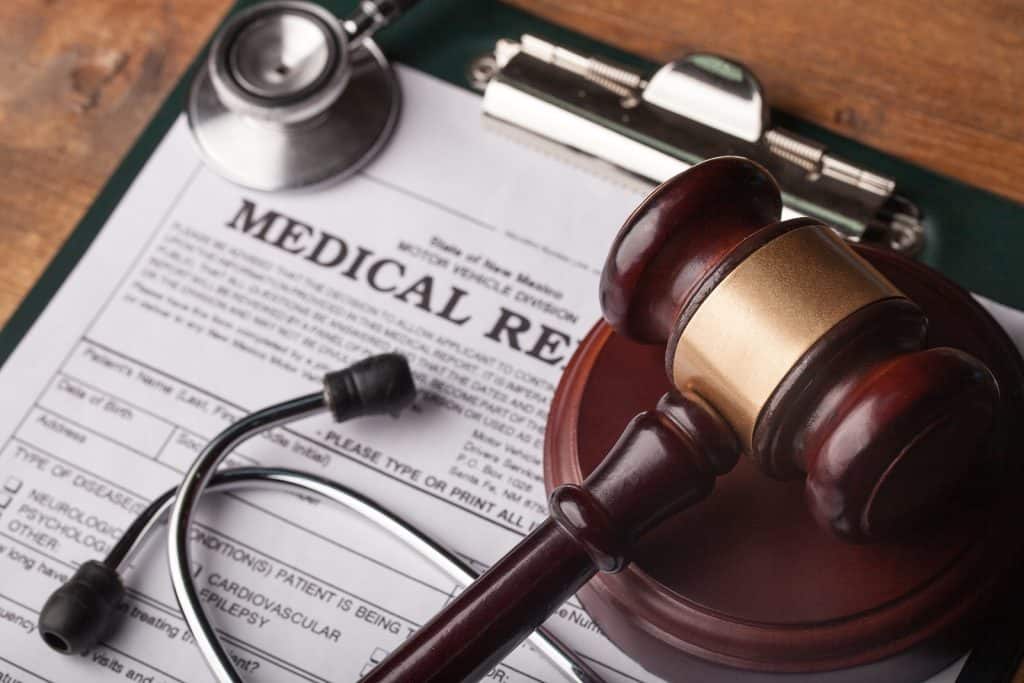Even the most conscientious medical professional can sometimes make a mistake, and almost a quarter-million people die annually from a medical mistake. A medical mistake, also called medical malpractice is defined as an act or failure to act that results in negligence by a medical professional and causes injury or death to the patient.
How do you determine if you or a loved one has been the victim of medical malpractice?
1. Did the medical professional have a professional duty to you?
If you’re discussing your health issues at a social function so that you can get free medical advice, then you can’t sue for malpractice. However, if you have a professional relationship with the medical professional and in their professional capacity they provide you with inaccurate or incorrect medical advice, you may have a malpractice lawsuit. The inaccurate or inadequate information can include:
- Misdiagnosis
- Failure to diagnose
- Incomplete diagnosis
2. Did you suffer harm as a result of the treatment or diagnosis provided to you?
If you’ve been diagnosed with a superficial condition but an underlying, more serious condition was overlooked, then you may have been the victim of malpractice. Your medical professional should be knowledgeable about the ramifications of your condition and competently, adequately, and accurately treat all of them. Otherwise, your condition can worsen and may become debilitating or deadly.
3. Was there a surgical error?
If you were scheduled for surgery and the wrong surgical procedure was performed, you may have a medical malpractice lawsuit. For example, you’re scheduled for an appendectomy but instead, you receive a hysterectomy. Any surgical procedure that’s performed other than the one for which you were scheduled is an error. When the incorrect procedure alters your lifestyle, such as disabling you or precluding you from bearing children, it exacerbates matters. If you underwent surgery when it wasn’t necessary, it can be considered malpractice.
4. Were there medication errors?
If you received the wrong medication for your condition or if the dosage was incorrect, then you may have a medical malpractice lawsuit. Your medical professional should have the knowledge and the diligence to prescribe accurately and adequately for your condition. Failure to do so can have serious consequences up to and including death.
5. Did you experience lack of due diligence?
This is a broad-spectrum term that can apply to:
- Ignoring or misreading lab tests
- Lack of followup or aftercare instructions
- Failure to recognize symptoms
- Inadequate patient history
If your symptoms worsen when they should be getting better, then you may be the victim of malpractice.
6. Were you prescribed the wrong medication?
If your medical professional has prescribed medication for your symptoms but they don’t seem to get better, it may be due to malpractice. Although the effectiveness of some medications will depend on the patient’s physiological response to them, you probably shouldn’t receive arthritis medication for a headache, for example. High levels of some medications can cause complications if you don’t need the medication. If you need a particular medication but aren’t receiving it, then your condition can worsen and you may need higher doses and additional medications.
What are your options when confronted with medical malpractice?
Most medical professionals are conscientious and dedicated, but everyone can make a mistake. An unpleasant thought is that even doctors who graduated at the bottom of their class are still doctors as long as they have passed their exams and licensing requirements.
Unfortunately, in the medical profession, mistakes can have dire consequences. If you or a loved one think you’ve been the victim of medical malpractice, then you should consult a medical malpractice attorney without delay. Not only can you receive compensation for the damage that was inflicted upon you, but you can prevent others from suffering the consequences of medical practice.


